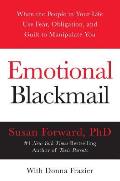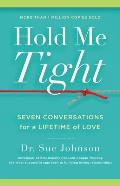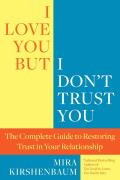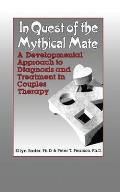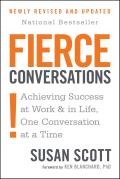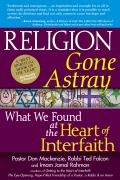Subtitle: When the People in Your Life Use Fear, Obligation, and Guilt to Manipulate You
Recommended to me by: looking up FOG: Fear, Obligation, and Guilt
Susan Forward clearly analyzes emotional blackmail and blackmailers in relationships, as well as the characteristics of people who become targets of blackmail. At the end, she has suggestions for reclaiming integrity and communicating assertively with blackmailers to give them the opportunity to reform.
Emotional blackmail steps: Demand, Resistance, Pressure, Threats, Compliance, Repetition.
By contrast, setting limits involves defining a position, stating what one needs, saying what one will and won’t accept, and giving the other person a chance to say yes or no.
Blackmailers are divided into categories: Punishers (“Do it or else I’ll hurt you”), Self-Punishers (“… or else I’ll hurt myself”), Sufferers (“You know how much I’ve been through”), and Tantalizers (“I could help you”).
FOG (Fear, Obligation, and Guilt) keep blackmail targets from thinking clearly. The blackmailer skillfully pushes buttons to make the target react rather than stop and think.
Traits that make targets vulnerable to FOG and emotional blackmail: an excessive need for approval, an intense fear of anger, a need for peace at any price, a tendency to take too much responsibility for other people’s lives, a high level of self-doubt. These are survival skills that may be out of date, and cause problems when they run the show.
Suggestions: Make a contract with yourself to restore integrity and take action. Repeat your power statement, “I CAN STAND IT.” Reverse statements such as “I tell myself what I want is wrong” into “I ask for what I want, even when it upsets the blackmailer.”
Send up an SOS: Stop (“I need time to think about it”), Observe (one’s own reactions, thoughts, emotions, flashpoints), Strategize (analyze demands). Demands might be minor, partly okay, open to compromise, or non-negotiable. List what you need, and expand your options. Decide what the bottom line is to leave.
Interestingly, the book uses the phrase “powerful non-defensive communication” and its publication date (1997) predates Sharon Ellison’s book on that topic (2002). Don’t take up the bait of attacks, but clearly and consistently stay on-message. “This is who I am. This is what I want.”
To disconnect from fear, she suggests thought-stopping. To disconnect from obligation, add “WHERE IS IT WRITTEN” to one’s obligatory rules. To disconnect from guilt, write a fairy tale in third person about what’s going on.
Her suggestions are based on the idea that our emotions follow our thoughts. She explicitly excludes seriously abusive relationships, and people who have experienced serious trauma and abuse. She also elides any discussion of racism, sexism, classism, or other power dynamics at work that might put someone down and out for resisting a blackmailer.
While she discusses attempts at resistance that get squashed, she still seems to be saying that the blackmail targets just didn’t resist the right way. According to her, blackmail targets train their blackmailers by acquiescing. As someone who actively resists guilt and doesn’t acquiesce much, I’m here to say that path has negative consequences too.
She states that blackmailers themselves are frightened and unaware of their tactics’ effects on the target. In the cases where this is true, her suggestions will be useful. In the cases where blackmailers are simply indifferent, or coldly aware of the efficacy of their tactics, these suggestions inappropriately suggest that the target is at fault.
This is a great first book about manipulation and assertiveness. It is clearly written with lots of anecdotes threaded through the book. If it isn’t your first introduction to these ideas, it feels somewhat shallow, like it sidesteps the hard parts.

